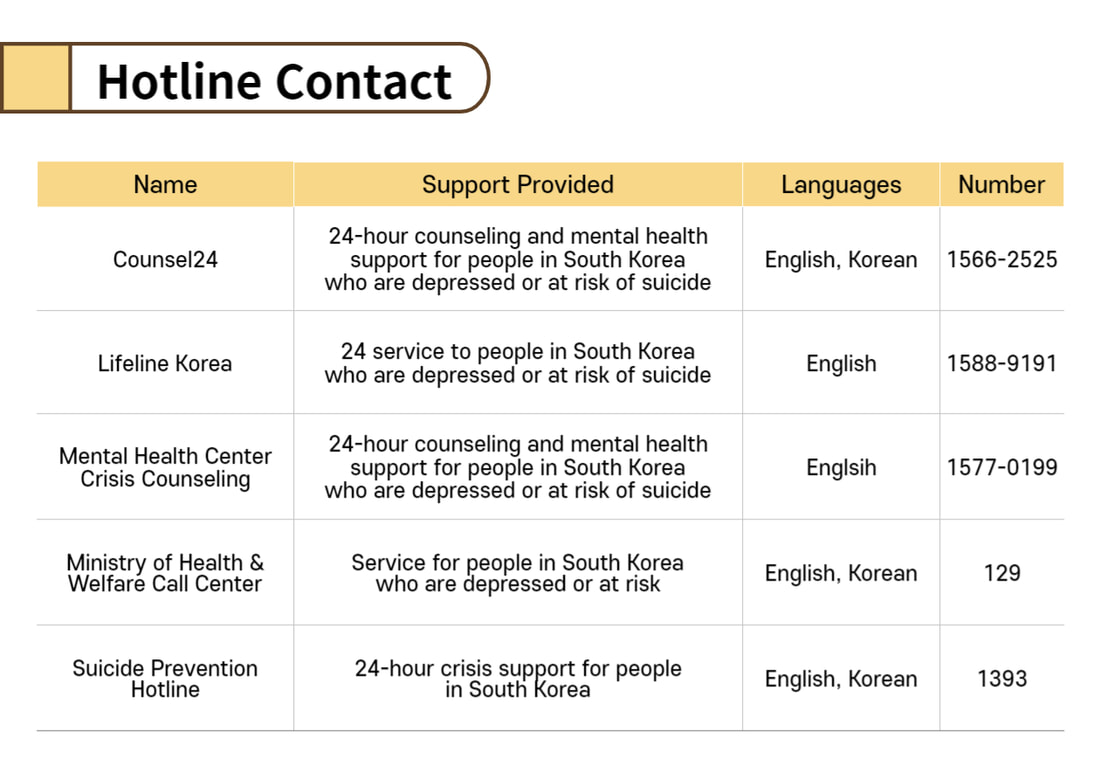|
Our thoughts and prayers are with everyone impacted by the tragic event in Itaewon this weekend (10/29). We are sending healing prayers to the families who have lost loved ones and those who were injured.
A disaster like this tragic event is unexpected, sudden, and overwhelming. For many people, there are no outwardly visible signs of physical injury, but there can be nonetheless an emotional toll. It is common for people who have experienced disaster (directly AND indirectly) to have a variety of strong emotional reactions. If you have directly affected by this event and having emotional difficulties, here are some things to consider before you see the need to seek professional support. Common Reactions and Responses to Disaster Following a disaster like this Itawon accident, people frequently feel stunned, disoriented or unable to integrate distressing information. This is because our brain is struggling to integrate the information about the event with our understanding of the world. Once these initial reactions subside, people can experience a variety of thoughts and behaviors.
How do I Cope? Fortunately, research shows that most people are resilient and over time are able to bounce back from tragedy. It is common for people to experience stress in the immediate aftermath, but within a few months most people are able to resume functioning as they did prior to the disaster. There are a number of steps you can take to cope with tragedy and gain a sense of control following a disaster, including the following:
When to Seek Professional Treatment if your traumatic stress reaction is so intense and persistent that it's getting in the way of your ability to function, you may need help from a mental health professional. Please do not hesitate to contact You&Me if you are needing extra support and help to cope with this tragic event. We are here for you. Some traumatic stress red flags include:
1 Comment
|
AuthorYou&Me Updates Archives |
yOU&mE pSYCHOLOGICAL AND cOunseling sERVICES (ypcs)
HoursMon-Fri: 9:30AM - 9:00PM
Sat: 10:00AM - 4:30PM Sun: Closed |
COntact USTel.
[Seoul] +82.2.6929.3014 [Pyeongtaek] +82.31.651.3885 [Fax] +82.2.6434.8013 [Seoul] [email protected] [Pyeongtaek] [email protected] Kakao Yellow ID ypcskorea Business Registration Number [Seoul] 410-95-15841 [Pyeongtaek] 749-86-02897 |
Bank account479037-01-015977 (Kookmin) MinJung Doh, YPCS
address[Seoul Office]
3F, 68, Ujeongguk-ro, Jongno-gu, Seoul, South Korea (03145) [Pyeongtaek Office] 3F, 37-1, Anjeongshopping-ro, Paengseong-eup, Pyeongtaek-si, Gyeonggi-do, South Korea (17982) |

 RSS Feed
RSS Feed